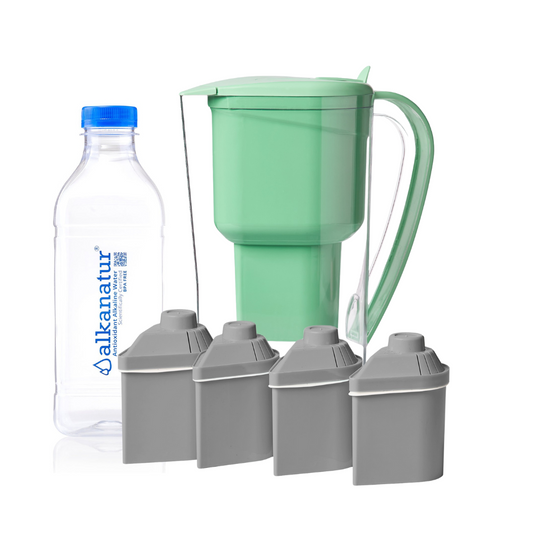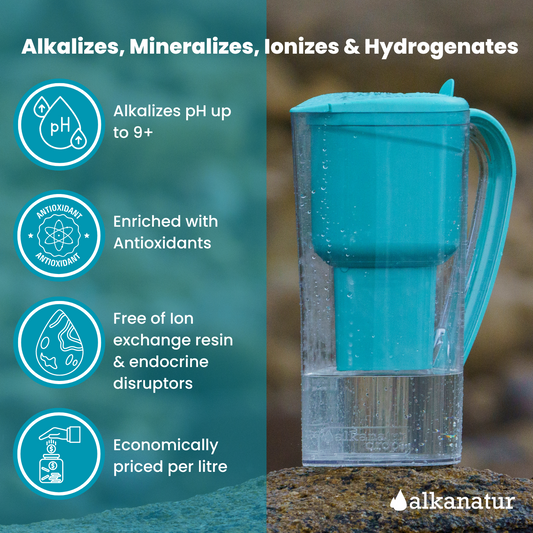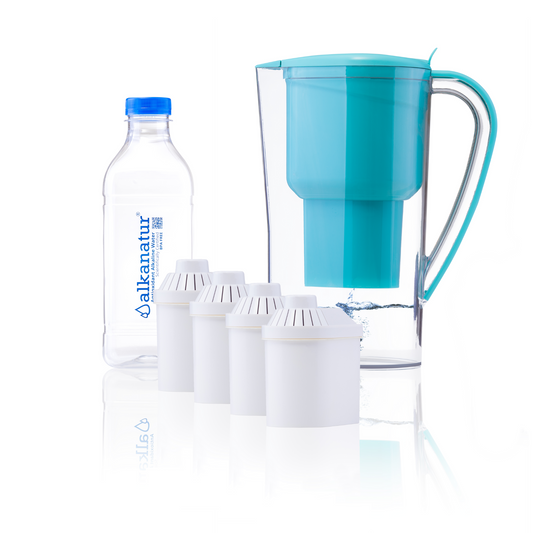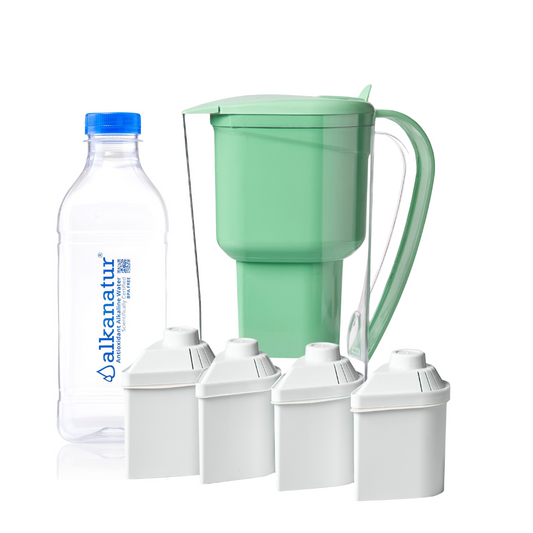Life depends on water, and at Alkanatur, we believe that having access to clean, safe drinking water is a basic right for all living things. But there are wide variations in the quality of tap water, and many people are not aware of the possible health hazards presented by specific contaminants. This article will discuss the negative impacts of heavy metals, microplastics, pharmaceuticals, fluoride, chlorine, and other contaminants in tap water as well as the importance of utilizing water filters to protect our health.
Chlorine:
To disinfect water and get rid of dangerous microorganisms, people frequently use chlorine. However, prolonged exposure to chlorine can irritate the skin and eyes, worsen respiratory conditions, and perhaps raise the risk of some malignancies. Additionally, when chlorine interacts with organic matter in water, disinfection byproducts (DBPs) are created that have been linked to health issues.
Fluoride:
In order to prevent tooth decay, fluoride is frequently added to tap water. However, consuming too much fluoride can result in dental fluorosis, a disorder that weakens and discolours teeth. Long-term exposure to high fluoride levels has been associated with neurotoxic consequences, thyroid disturbance, and bone fractures.
Heavy Metals:
Lead, arsenic, and mercury are examples of heavy metals that can enter tap water as a result of human activity or natural sources. These metals offer substantial health concerns even in tiny doses, especially to developing children and pregnant women. While other heavy metals can harm organs and impair vital physical functions, lead exposure can cause developmental and cognitive problems.
Microplastics:
Due to plastic contamination, microplastics—tiny plastic particles—have spread throughout water sources. When swallowed, these particles can release dangerous substances and mess with our hormonal balance. Although research on the long-term impact of consuming microplastics on human health is ongoing, it is obvious that limiting exposure is crucial.
Pharmaceuticals:
Water sources and tap water can get contaminated with pharmaceuticals and personal care items due to poor disposal and inefficient treatment techniques. Even in tiny doses, these compounds can have negative effects on human health, lead to antibiotic resistance, and have long-term negative effects on the environment.
Water Filters to the Rescue!!!
By eliminating or lowering pollutants from tap water, water filters like Alkanatur are essential in protecting human health. Here are some good reasons to use water filters:
Health Protection: Chlorine, fluoride, heavy metals, microplastics, and pharmaceuticals can be successfully removed or reduced from water, lowering the risk of health problems linked to these contaminants.
Taste: Water filters can improve the taste and odour of tap water by eliminating offensive flavours and odours. The better your water tastes, the more you will choose to drink it.
Impact on the environment: Using water filters lowers the use of bottled water, reducing plastic waste and the carbon footprint related to the manufacture and delivery of bottled water.
Cost-Effective: Although a water filter's initial expenditure may appear substantial, the long-term costs are minimal, compared to buying packaged water products.
The risks that could be present in tap water emphasize how crucial it is to take responsibility for our water. Significant health concerns can be posed by chemicals like fluoride, heavy metals, microplastics, and medicinal residues. We can ensure that the water we consume is free of dangerous toxins by making an investment in dependable water filters, safeguarding our health, the environment, and future generations. Keep in mind that making wise decisions now can result in a healthy tomorrow.
Alkanatur Alkaline Water Filter Pitcher with Magnesium & Antioxidants – Alkanatur North America
Alkanatur Shower Filter Removes Chlorine, Heavy Metals, Bac – Alkanatur North America









